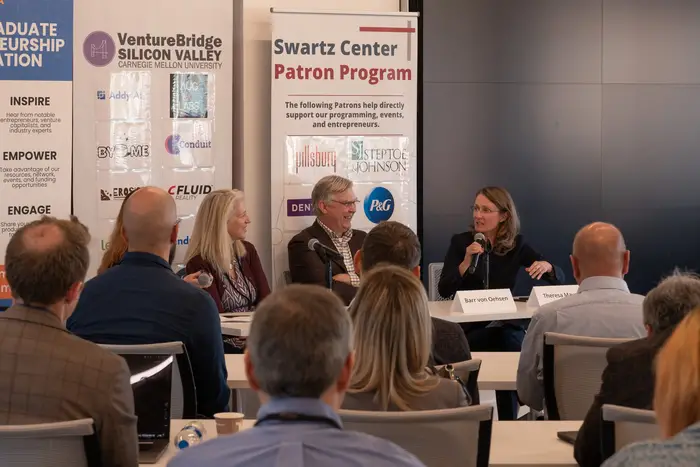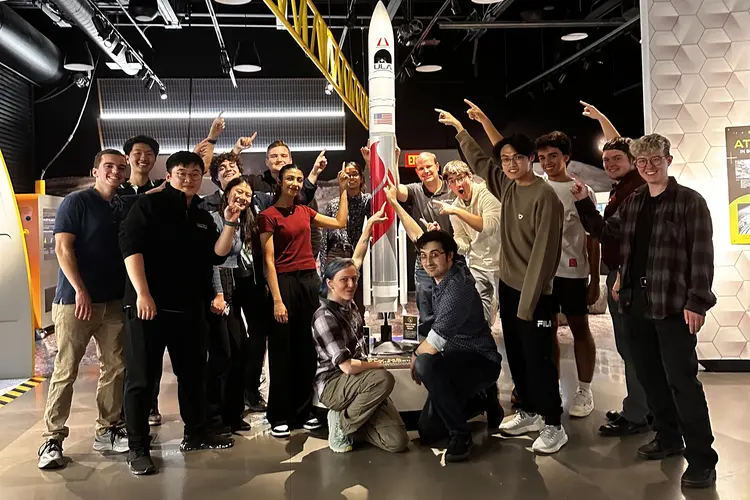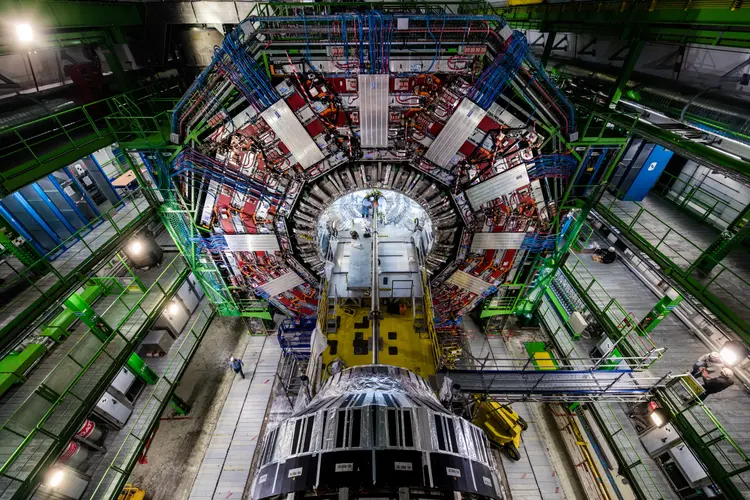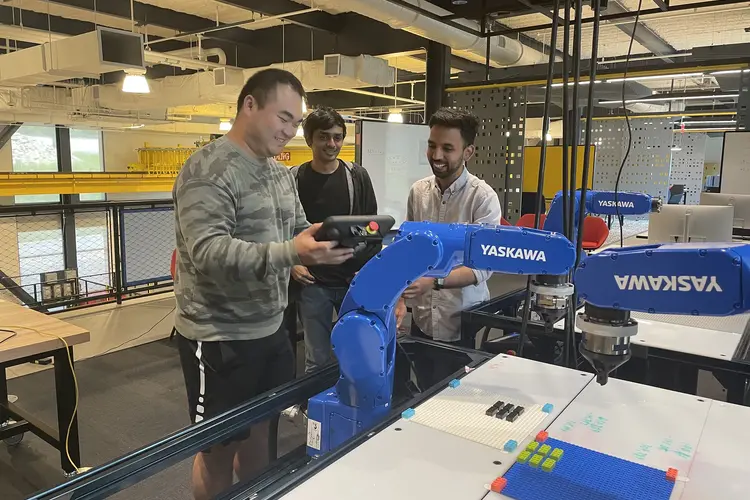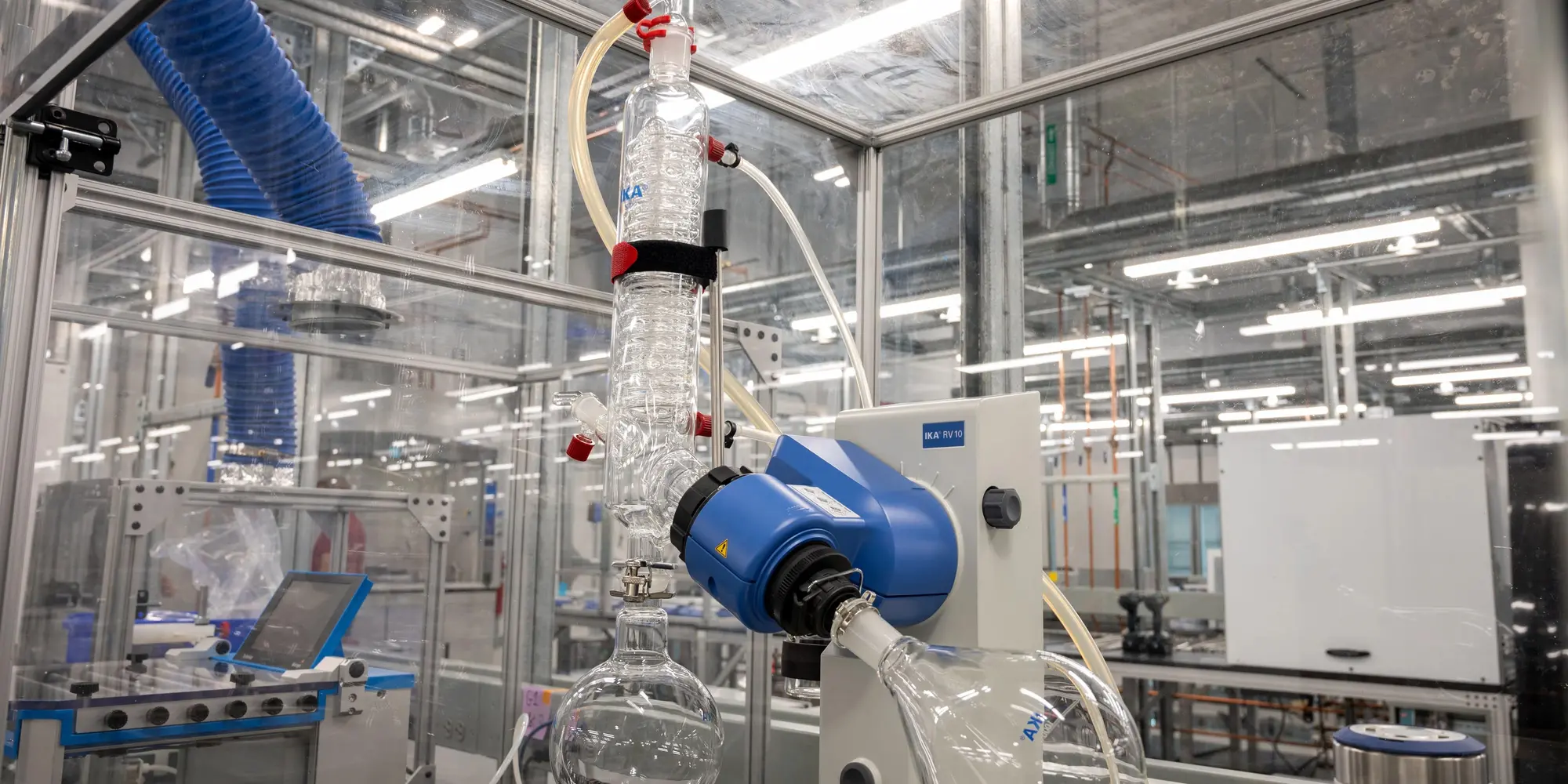
Experts in Automated Science Convene at Carnegie Mellon University
NSF workshop brought luminaries in emerging field to campus
Media Inquiries
Experts in automated science from across the United States and Canada came to Carnegie Mellon University last month to attend “Creating a National Network of Academic Cloud and Self-Driving Labs(opens in new window),” a National Science Foundation (NSF) workshop on the future of science.
The workshop, organized by the Office of the Vice President for Research(opens in new window) and the Mellon College of Science(opens in new window), gathered stakeholders to address the short- and long-term priorities transformative potential of cloud labs and self-driving labs. Cloud labs, like the soon to open lab at CMU(opens in new window), allow researchers to conduct high-throughput experiments remotely and increase access to a wide variety of highly specialized tools. Self-driving labs use artificial intelligence to inform which experiments should be conducted; AI can be used to make cloud labs self-driving.
Workshop topics included lowering barriers to access, open science policies, training and workforce, and the infrastructure investments needed to support a national network of these cutting-edge capabilities.
Theresa Mayer(opens in new window), CMU’s vice president for research, said the group’s input will help to establish the foundation for critical public and private investments at this pivotal moment in automated science.
"We have brought together representatives from a broad section of the community, including university experts, industry leaders, end users, federal labs and agencies, to achieve the goals of the workshop," she said. "We want to think about our long-term goals in automated science, and also about our priorities in the near term, one to three years, to ensure the full promise is realized."
Mayer emphasized the potential of automated science to help address some of society's biggest challenges.
"To harness the data collected and then to leverage that data to drive the next round of experiments is critically important … This should not just increase throughput, but allow us to think differently to solve problems that we currently cannot," she said.
"This should not just increase throughput, but allow us to think differently to solve problems that we currently cannot." — Theresa Mayer
In his keynote, Benji Maruyama of the U.S. Air Force Research Laboratory said that automated science could help researchers move more quickly on problems that can't wait, like global climate change.
"We need to move toward a teaming model between humans and autonomous robots where autonomous robots are tools and teammates to help us go faster in our human-led research," he said.
In several sessions, panelists spoke of the opportunity for automated science labs to learn from the success and challenges faced by other fields. Tom Kalil, the chief innovation officer of Schmidt Futures, cited the application of machine learning to protein folding and protein design as an example.
"Advances like AlphaFold2 and RFDiffusion happened as a result of having a well-defined problem, a large open dataset, the Protein Data Bank, and an agreed-upon benchmark for evaluating progress," said Kalil. "I think the research community should be trying to identify other areas where this combination of a 'dream dataset' and a benchmark could have a similarly transformative impact on the acceleration of scientific discovery(opens in new window)."
James Barr von Oehsen(opens in new window), director of the Pittsburgh Supercomputing Center(opens in new window) — a joint center of CMU and the University of Pittsburgh and a partner in the NSF cyberinfrastructure program — and a research professor of electrical and computer engineering at CMU, noted the automated science community needs to work closely with its user base to make sure that they are able to offer input and realize the benefits.
"Campuses already have experimental labs," he said. "All that equipment is out there, so you need to understand what’s happening on campuses before building a national network."
The workshop also included a tour of a large-scale, automated lab — the Carnegie Mellon Cloud Lab — based on the platform of the CMU-alumni founded Emerald Cloud Lab. The remote-controlled, automated lab will allow researchers and students from high schools, universities, industry and nonprofits to program experiments from anywhere in the world. Those experiments will be executed by robots and technicians on the more than 130 unique pieces of laboratory equipment in the lab.
The workshop was supported by an award from NSF’s Technology, Innovation and Partnerships (TIP) Directorate. A report of its findings is forthcoming.
Automated science has the potential to:
- Accelerate the design, build and test cycle.
- Make more data available for training machine learning models.
- Empower early career scientists to spend more time designing experiments, making better use of our highly trained workforce.
- Increase the variety of experiments that individuals can do.
- Attract more investors to support science-based startups.
- Make progress in reproducibility.
- Make equipment more available.
